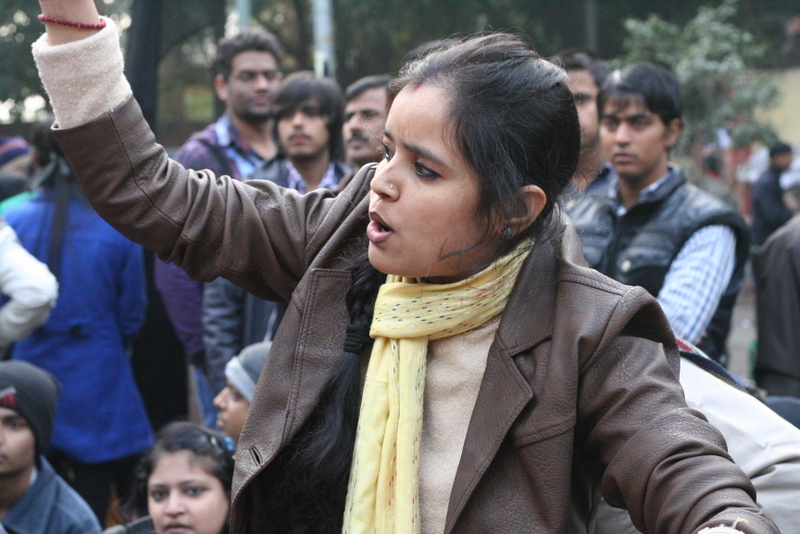By Ashley Mussbacher (The Cascade) – Email
Print Edition: March 18, 2015

Rape is not a new problem. It’s found in films, literature, and language. It appears in Greek myths like “Leda and the Swan,” where Zeus takes the form of a swan and rapes Leda. In the 1970s in North America, rape was identified by the feminist movement as having its own “culture.” Today, a film called India’s Daughter has sparked a new wave of action, and its censorship in India has only fuelled the dialogue surrounding it.
In December 2012, a young woman was returning home from seeing a late-night movie with a male friend in Delhi when she was trapped at the back of a city bus and gang-raped by several men. After the brutal assault, in which they also impaled her with a lead pipe to “teach her a lesson” and pulled out her intestines, they threw her and her friend off the bus, naked, and left her to die. This caused uproar in the already-tense, politically charged situation of gender inequality in India.
The BBC created the documentary India’s Daughter after the horrific event, but India’s national government censored it from airing in Delhi. The censorship indicates that in India, “rape is too taboo of a subject to be discussed frankly and openly,” according to Bob Dietz of the Committee to Protect Journalists.
But if no one will talk about it, how will anything change?
Ironically, the censorship of this documentary has caused an interesting dialogue of its own. Harvinder Singh produced his own rape documentary in response to India’s Daughter called United Kingdom’s Daughter, in which he asserts that 250 women are raped in Britain each day, with only 10 per cent of the cases resulting in convictions. It ends with the message that rape is a global problem.
Singh is right. When BBC aired India’s Daughter and the Delhi gang rape became a heated topic on Twitter, the anger was directed at India and its backwardness, accusing its citizens of being barbaric. It’s easy to point and make accusations, especially when those accusations redirect the focus from yourself. One in four women in North America will be sexually assaulted in their lifetime, and the United States actually ranks number one in rape cases globally, according to the US Bureau of Justice Statistics.
Another side to this topic is the common belief that men are solely responsible, but this is not the case. As it is with any crime, both genders have potential to commit rape. India’s Daughter features lines from the male offenders claiming that women have “no place” in India’s society, and that their purpose is to be housekeepers. These scenes are framed in order to fuel the flames. It’s working as intended, and people are beginning to speak out against sexism in India. However, victims of sexual assault include men as well, and I’m afraid that framing the offenders in India’s Daughter in such a way will further categorize all men as predators.
It’s time the dialogue around sexual assault became more inclusive to the many different variables involved. Rape is not a simple topic: there is no perfect victim or offender, no black and white. It is muddled and gray. A typical response to something this controversial is to fold all its pieces and loose threads into a tiny box and file it away neatly under a category, clearly labelled, recognizable, and easy to understand. But the events and factors leading up to assault are incredibly subjective. By simplifying it through censorship or labelling it a taboo, the necessary discussion for learning from such a complex topic is lost.


